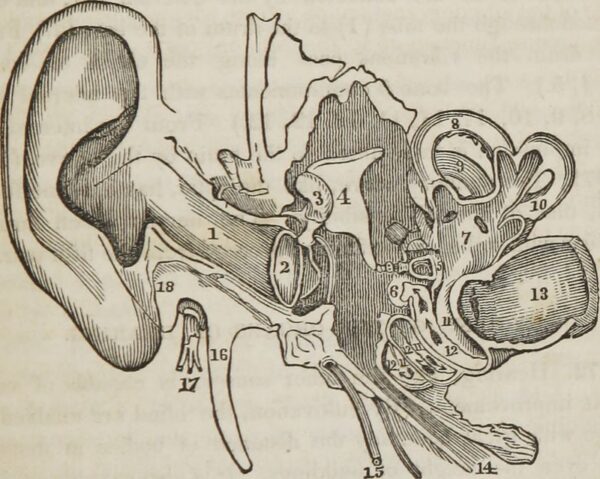
An experimental regenerative therapy that Frequency Therapeutics was developing to treat a form of hearing loss has failed to beat a placebo in a clinical trial for the second time in two years, results that led the biotech company to announce on Monday the layoff of more than half of its staff and a shift of resources to a preclinical program in multiple sclerosis.
Frequency was testing its hearing loss therapy, FX-322, in patients who have sensorineural hearing loss (SNHL), which is caused by damage to the tiny hair cells in the ear that turn vibrations into the electrical signals sent to the brain via the auditory nerve. FX-322 is a small molecule designed to target and activate progenitor cells, cells descended from stem cells that have the ability to differentiate into specific cell types. By targeting progenitor cells in the inner ear, Lexington, Massachusetts-based Frequency hoped its approach would regenerate hair cells.

With the Rise of AI, What IP Disputes in Healthcare Are Likely to Emerge?
Munck Wilson Mandala Partner Greg Howison shared his perspective on some of the legal ramifications around AI, IP, connected devices and the data they generate, in response to emailed questions.
FX-332 was previously tested in a Phase 2a study enrolling 95 adults who received the experimental therapy as four weekly injections. The Frequency drug was evaluated according to a hearing test that assesses word recognition. In 2021, results showed that the drug did not lead to improvements compared to a placebo. The company attributed the disappointing result to uncontrolled bias and the limitation of the study to a single baseline measure.
Frequency tried again with a larger Phase 2b study enrolling 142 adults with either sudden or noise-induced SNHL. This study also assessed word recognition. But the company aimed to mitigate bias with tweaks to the trial design that included masking both the subjects and the sites and recording all test sessions. Also, the trial was preceded with a lead-in portion during which subjects made multiple visits to establish a consistent baseline measure for a patient’s sound-hearing ability.
According to the results reported on Monday, those dosed with the Frequency drug showed no statistically meaningful difference in speech perception at day 90 compared to those who were given a placebo. The results also failed to show measurable improvement on the study’s secondary hearing goals. The company had also reached early clinical development with another hearing loss drug candidate, FX-345. This molecule was designed for broader exposure in the cochlea. Based on the results of FX-322, Frequency said both hearing-loss programs will no longer continue.
With its hearing-loss programs ending, Frequency now aims to see if targeting progenitor cells can treat multiple sclerosis (MS), a disease in which the immune system destroys myelin, the protective sheaths that cover nerve cells. Frequency says its MS research has identified a novel target that regenerates myelin sheaths by activating oligodendrocyte progenitor cells, according to the company’s annual report. Frequency’s compounds worked better than other unspecified compounds in head-to-head preclinical tests, the company said in an investor presentation. In the presentation, Frequency said it aims to bring an MS drug into the clinic in the first half of 2024.
In the meantime, Frequency will lay off about 55% of its staff. The job cuts will take place in phases that are expected to be complete by the end of April, Frequency said in a regulatory filing. As of last March, the company employed 74 people, according to its annual report. That figure was shaved by 30% the following month in a restructuring that focused the company on its hearing-loss programs. With the latest restructuring, Frequency estimates that its $83.1 million cash position will carry the company into 2025.
“We are thankful to the patients, clinicians and their staffs, and the experts from our clinical advisory board who helped us to design and run a conclusive study in SNHL,” Chris Loose, Frequency’s chief scientific officer and interim CEO said in a prepared statement. “We hope the learnings from our studies will benefit the field and ultimately support the successful development of future treatments for hearing loss.”
Loose has temporarily taken the chief executive role while David Lucchino is on medical leave after his hospitalization for bacterial meningitis. The company expects Lucchino to fully recover and return in the coming weeks.
Public domain photo by Flickr user Internet Archive Book Images














